ACLOGY
/ Deliverables
User Interviews | Figma Prototype | Design System
Role
Product Concept
User Research
Usability Testing
UX/UI Design
Prototyping
Team
2 Developers
THE GIST
ACLOGY is a personal project dedicated to individuals recovering from an ACL tear (see here if you have no idea what I'm talking about). The app is aimed to help users identify and address pain points during recovery so they can confidently return an active lifestyle. This case study is a preview of what's to come.
THE GAP
Studies have highlighted a link between experiencing an injury and psychological challenges such as frustration and disengagement. Many physio apps fail to address this issue and assume motivation stays a constant.
A physio app, strava, & reddit walked into a bar...
Drawing inspiration from Reddit, Strava, and fitness apps, ACLOGY aims to be a comprehensive platform that aids users in achieving a successful and sustainable recovery through community and structure.
Humanizing the app experience.
Based on user feedback, I incorporated interactive features such as conversational elements that simulate real-time support to encourage users to engage with the app more actively and make them feel less alone in their struggles.
THE PROBLEM SPACE
Only 60% of nonelite athletes return to their preinjury level of sport after ACL surgery.
/ RESEARCH + USER PAIN POINTS
8 of 9 interviewees experienced a plateau after returning to daily life
Studies from the Arthroscopy, Sports Medicine, and Rehabilitation Journal revealed that ACL injuries entail psychological concerns such as uncertainty, fear, and reduced knee self-efficacy. It shows how negatively charged affective feelings can influence treatment outcomes and patient satisfaction.
So, I interviewed 9 people who underwent ACL surgery & have not returned to sport. There was a strong correlation between uncertainty and failing to return to sport; and interviewees expressed a lack of motivation to prioritize their recovery over daily life.
Research Insights
How might we help patients feel confident and responsible for about their recovery so they can return to sport without fear of reinjury?
3 major design improvements
based on usability testing & user feedback
Humanize app experience
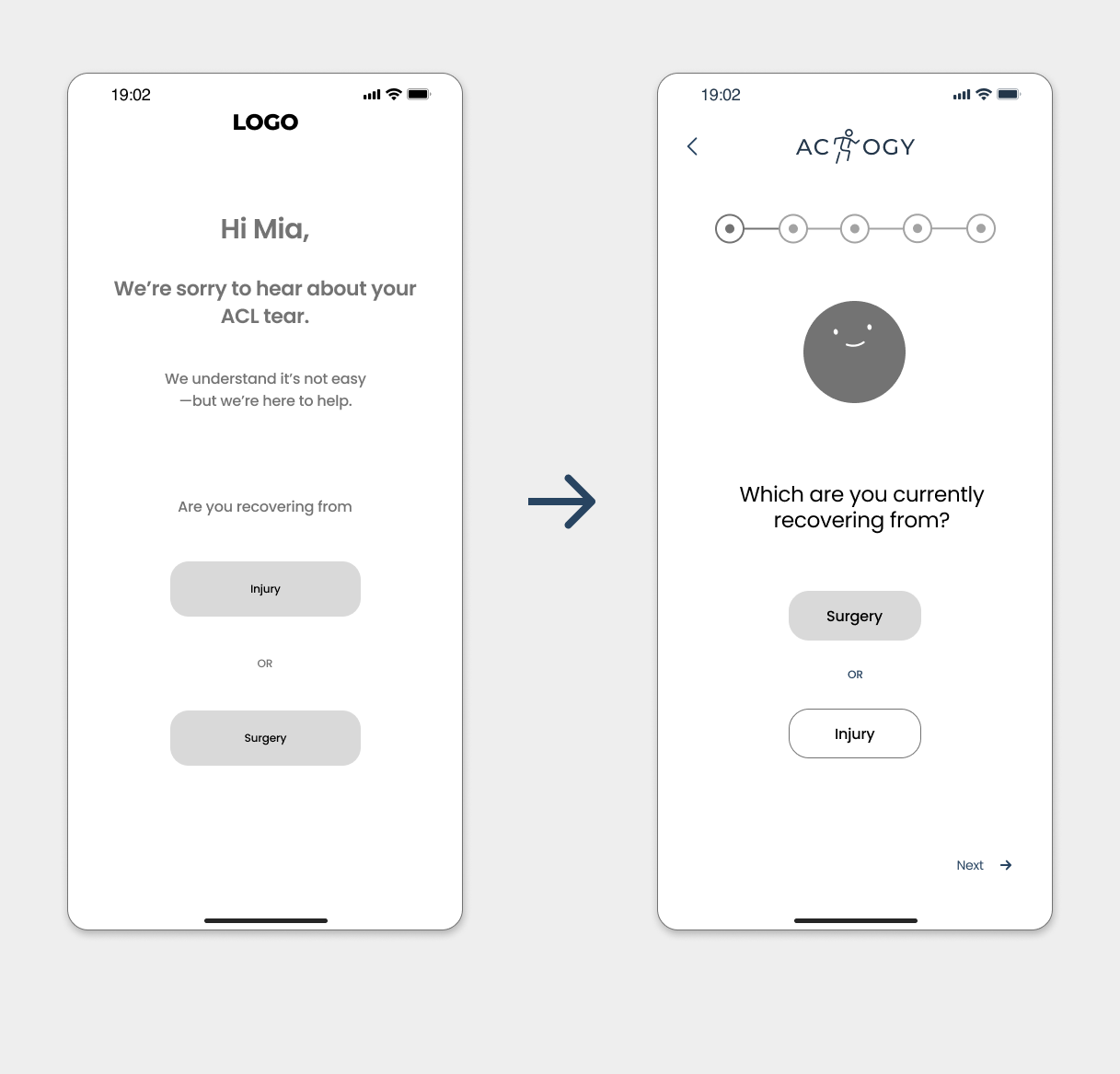
- Based on user feedback, personifying the support to guide the user throughout recovery seemed to evoke more empathy
- Increases emotional engagement; feel more understood and less alone in their struggles
- Offers interactive features such as conversations
- Make app experience more enjoyable and encourage regular use
Increase focus on mental
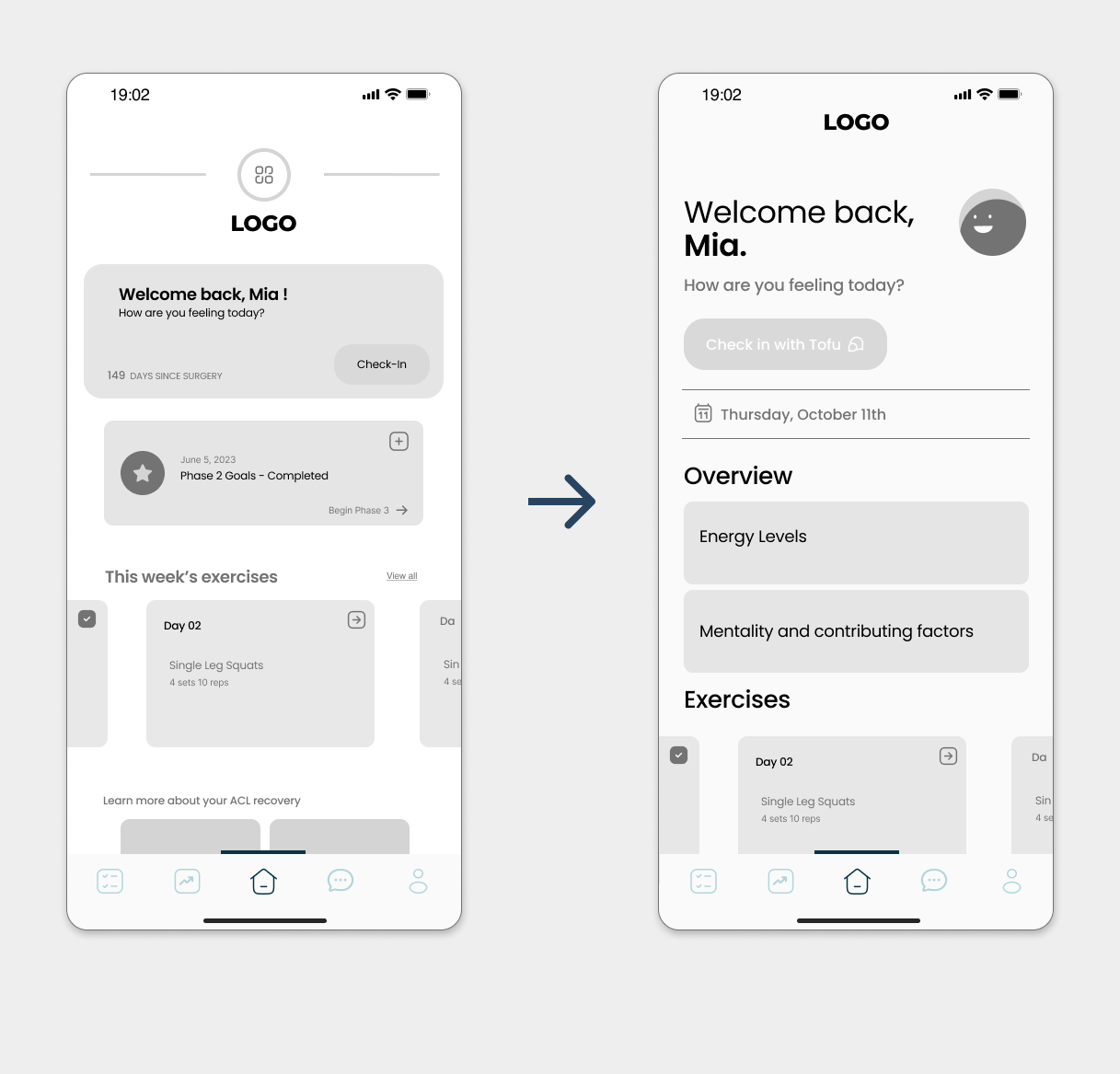
- User testing revealed that the initial homepage design was not prioritizing mental aspects enough
- Emphasis on goals and exercise should not minimize attention on mental health
- Switch to a more inviting mental check-in with the app's companion
- Overview of energy levels + mentality patterns so users can identify when they may need more support
Broadcast feed
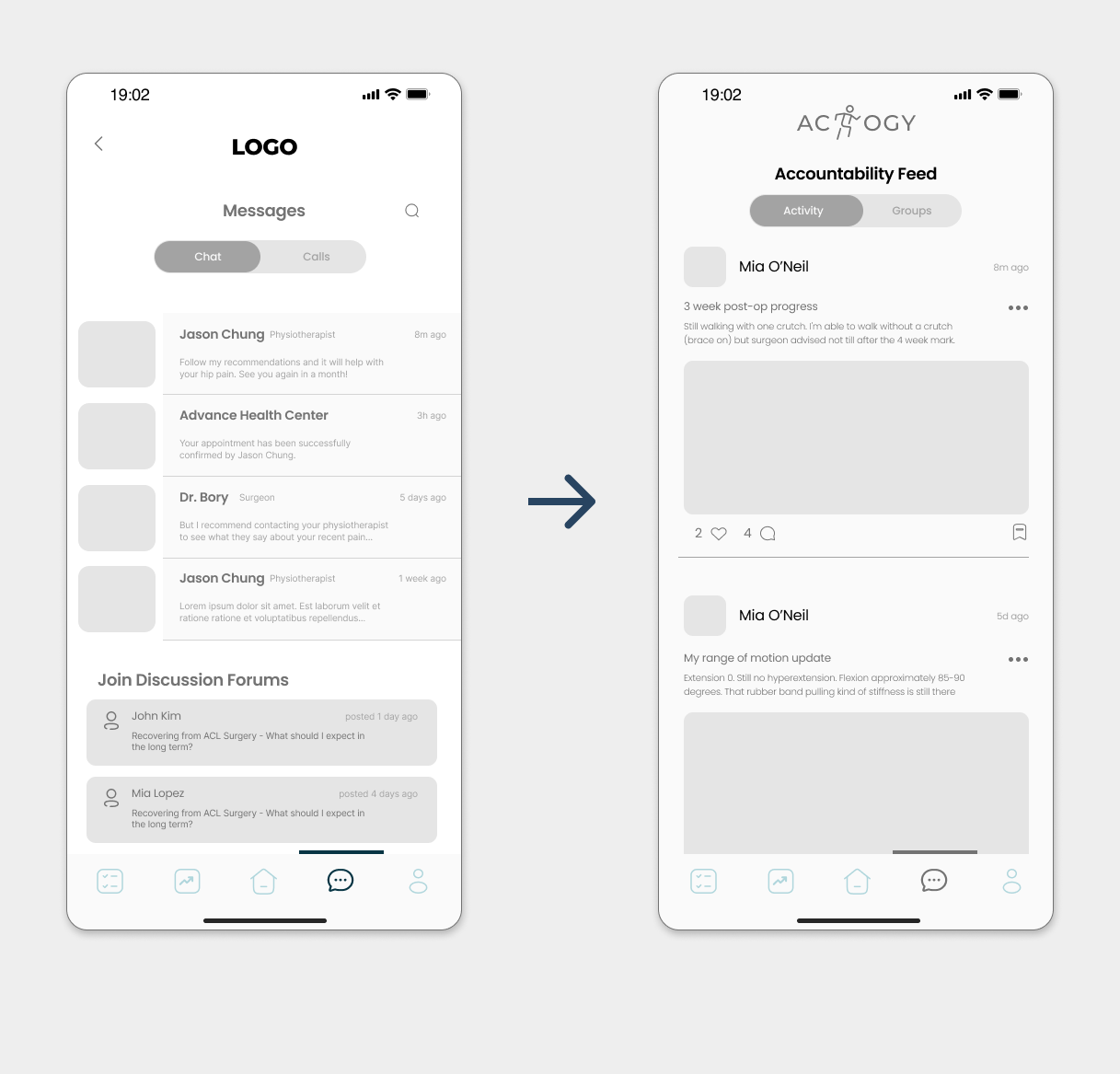
- To address the accountability aspect, feed feature to share and document recovery milestones
- Social media feeds encourage better behavior as appears more "public"
- Instant gratification of likes/comments to encourage consistency
- Support groups/discussion forms about mental health and rehabilitation tips

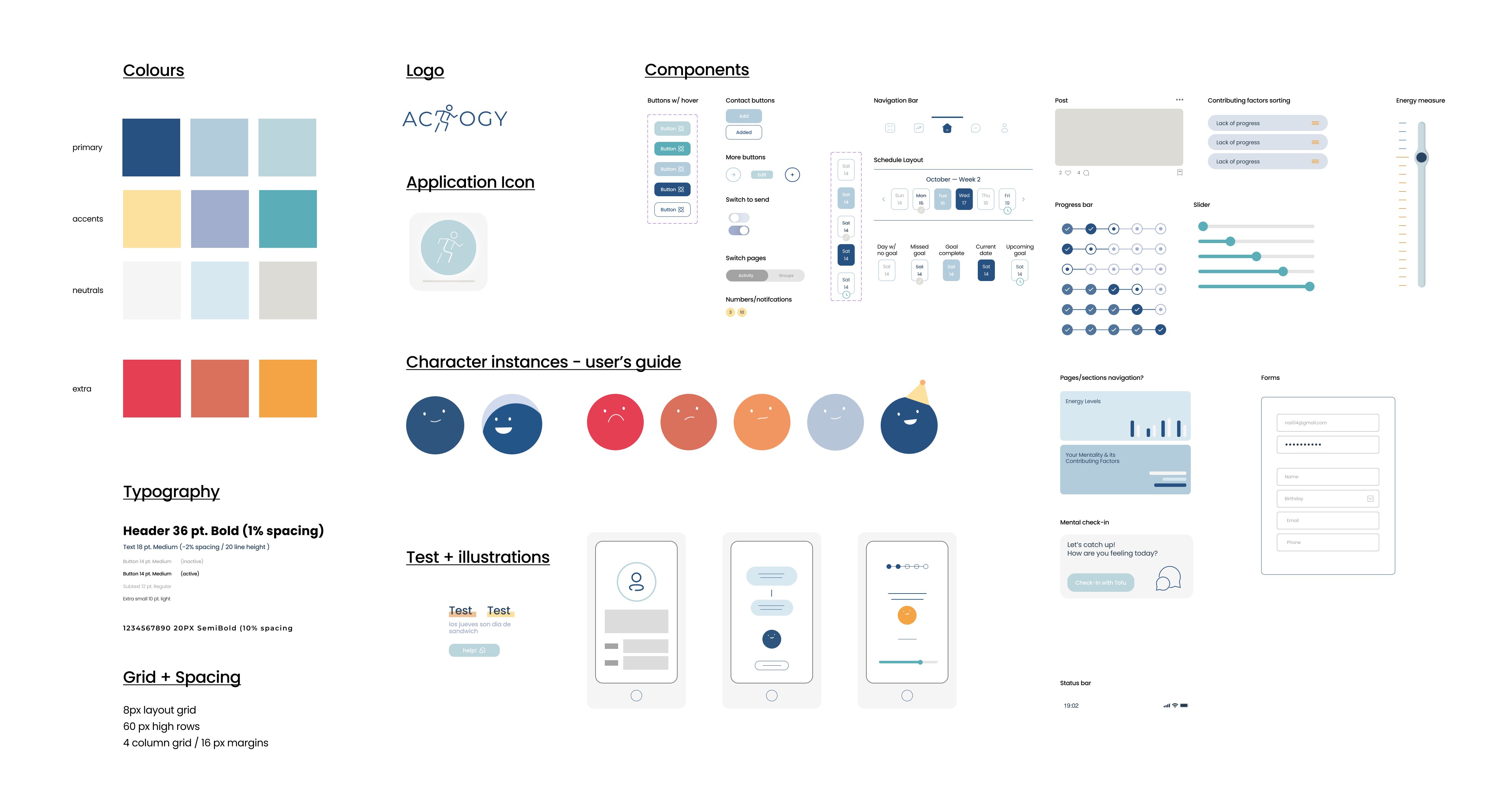
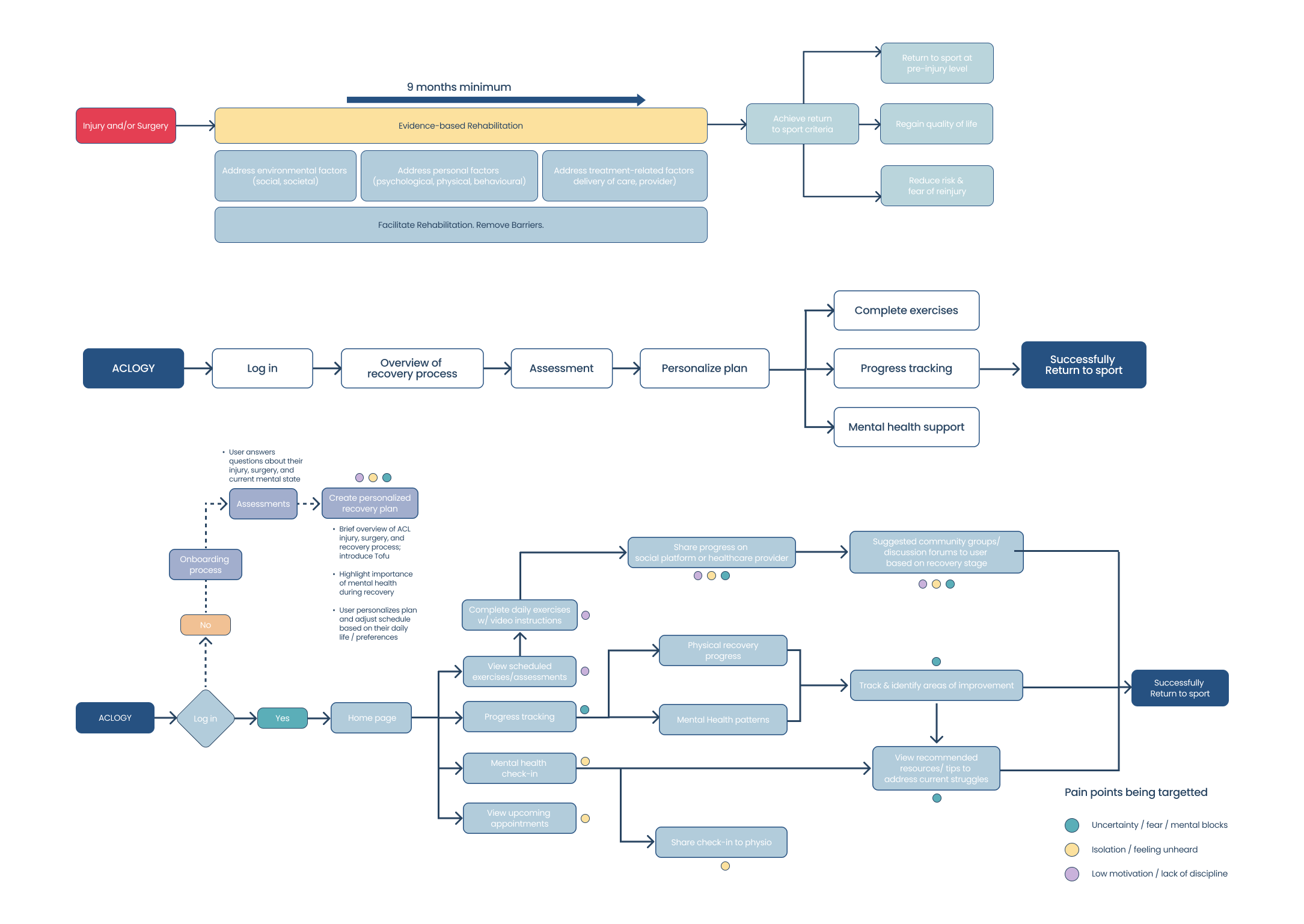
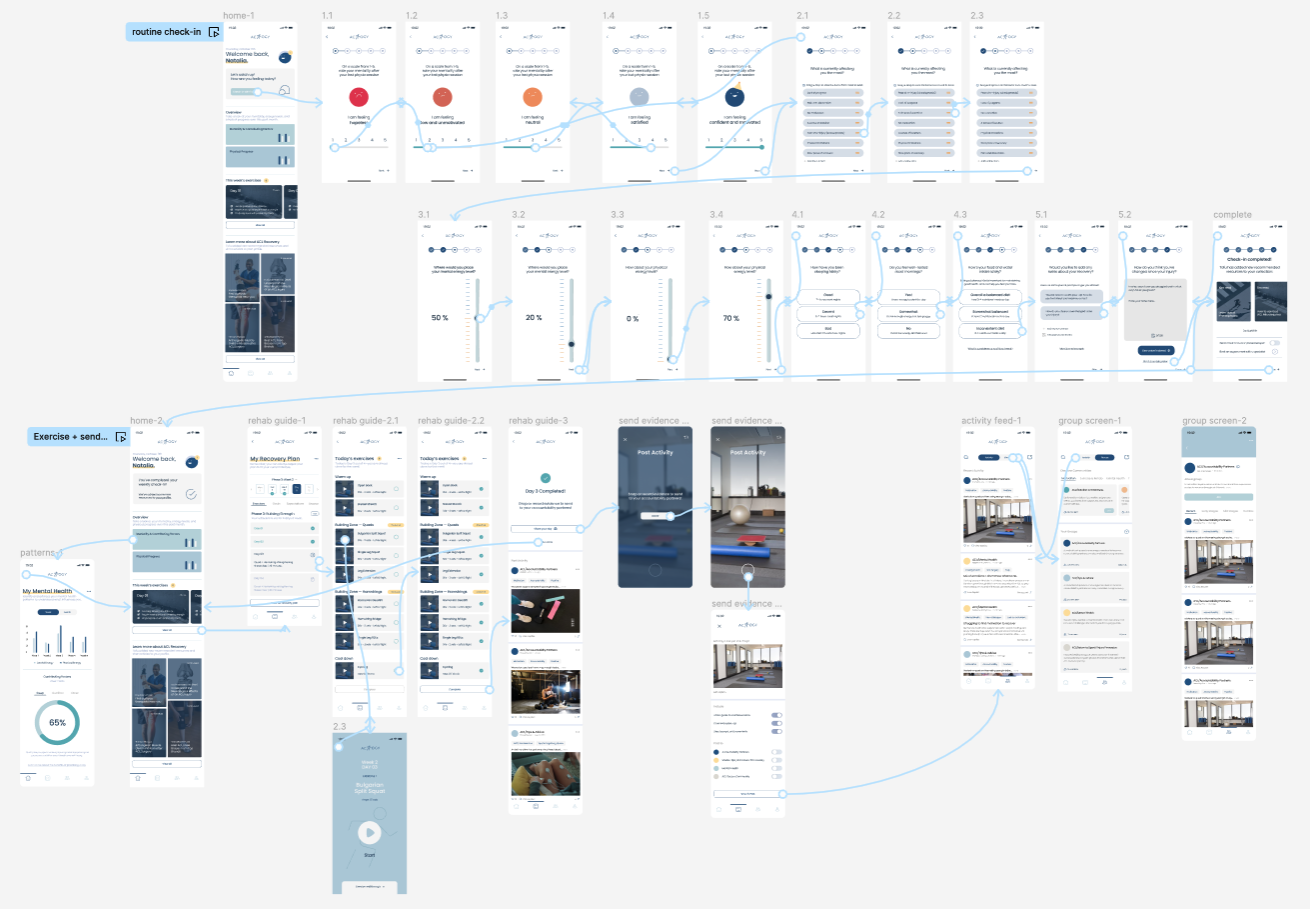
FIGMA PROTOTYPE
My learnings
This project taught me the importance of designing with empathy. Addressing the emotional barriers of recovery, like motivation and fear of reinjury, proved more challenging than the physical aspects. I experimented with Augmented Reality, only to find through feedback that it would be more of a hassle than a help. This reinforced the value of iterative testing and feedback in refining features to truly meet users' needs and enhance their recovery experience.
What's next?
As an ongoing personal project, the app is in the process of being tested and developed by some talented friends of mine. I plan to further explore more barriers and discover different opportunities to increase accountability (i.e. monetary consequences, gamification). Wish me luck!


